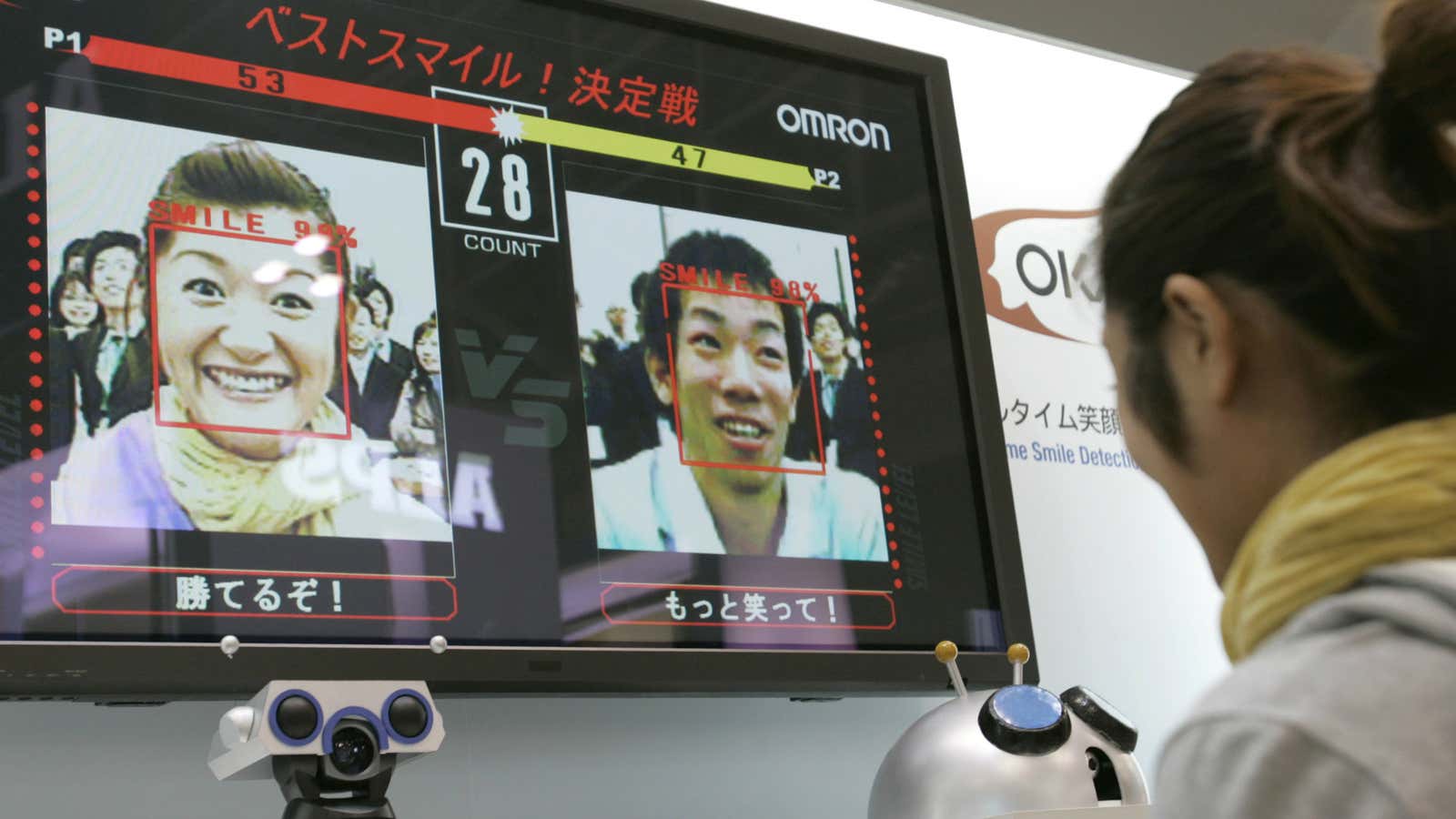Set aside the ad-blocking debate for a moment. The biggest development in advertising right now may not about whether you watch the ads, but whether the ads are watching you.
London pedestrians who gave as much as a passing glance this summer at posters for an innocuous coffee brand called Bahio probably didn’t realize they were supplying data to what its creators are calling “the world’s first-ever artificially intelligent poster campaign.”
Using a Microsoft Kinect camera—the same device some Xbox fans worried was tracking their faces for targeted ads—the poster scanned the facial expressions of up to 12 people in its vicinity. Over time, the images and taglines changed to reflect viewers’ reactions.
The product of M&C Saatchi, Posterscope, and Clear Channel, the posters collected more than 42,000 reactions this summer, according to the Guardian. In response to privacy concerns, M&C Saatchi insists that the company did not save “anything recognizable.”
“Each interaction is given a number, that’s it,” said David Cox, chief innovation officer of M&C Saatchi. “We’re trying not to be creepy.”
Criticism of the ads has fallen into two camps: first, that it marks the beginning of ad creatives’ replacement by robots, a concern M&C Saatchi has done little to assuage. “Machines have taken over more and more jobs in every industry,” Cox says in a promo video. “So we thought, what about advertising?”
The second is that ads like these further erode individual privacy and consumers’ ability to choose who gets their data. Use of facial technology is booming, from stores that recognize frequent shoppers’ faces to Facebook’s automatic tagging of people in your photos.
Europe has taken a more skeptical view of this technology. Germany ruled in 2011 that Facebook’s facial-recognition software violated its privacy laws, leading the company to hold off on introducing its photo-scanning Moments app there this year.
But in the US, regulation has been much slower in coming. There are no federal laws governing the use of facial-recognition technology. (Texas and Illinois have passed laws barring its use without explicit consumer consent.) Even technology companies that aren’t currently mining facial-analysis data for commercial purposes are making sure to leave themselves the freedom to do so in the future when batting away queries about privacy, as Microsoft did over the Xbox One’s Kinect.
The issue’s not going away. Software analyzing the emotions of your facial expressions is progressing so quickly that Rana el Kaliouby, co-founder of the AI firm Affectiva, told the New Yorker she thinks that “10 years down the line, we won’t remember what it was like when we couldn’t just frown at our device, and our device would say, ‘Oh, you didn’t like that, did you?’”
